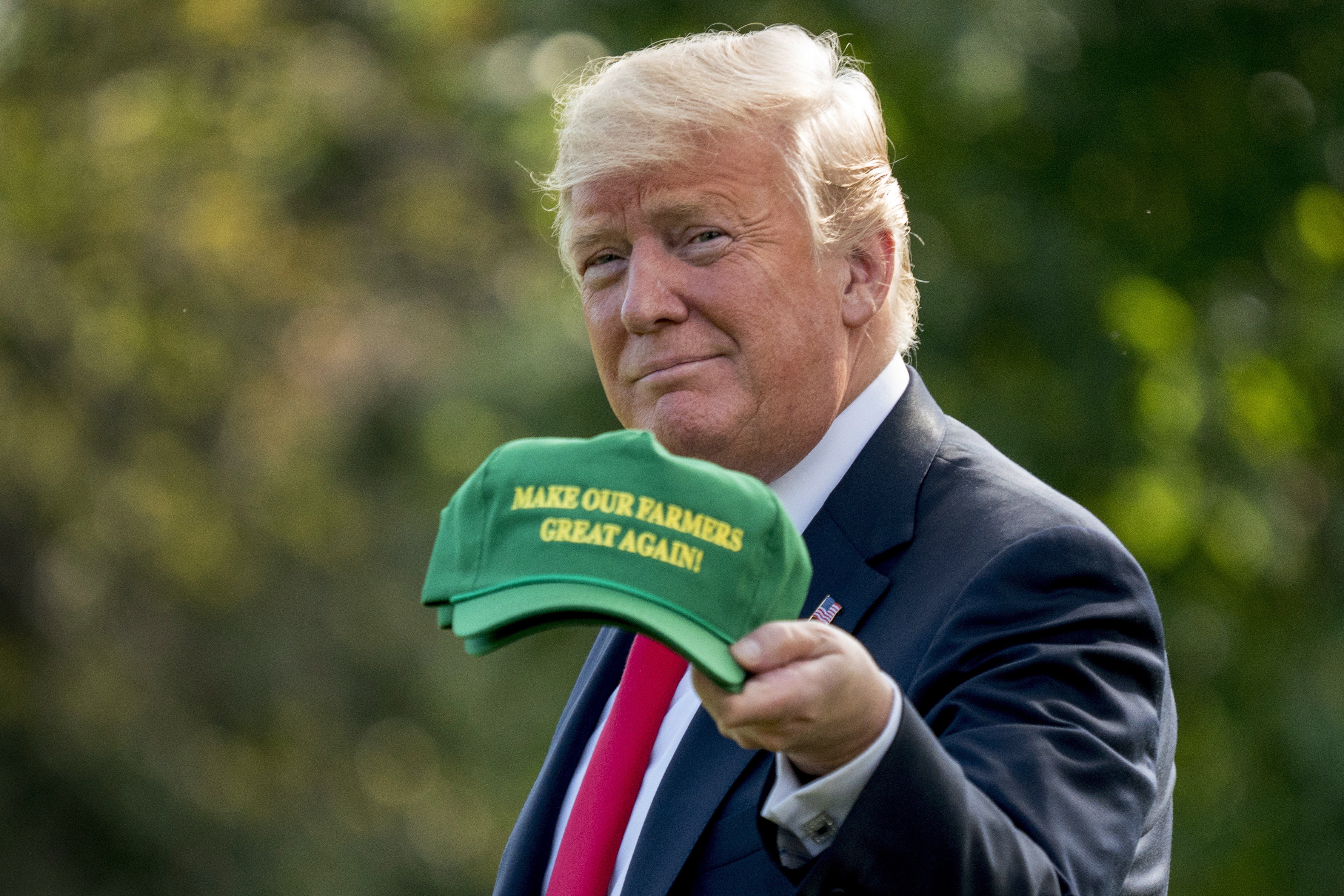NAFTA, the North American Trade Agreement, between Canada, the United States and Mexico, is being renewed and renegotiated in Washington.
The three parties resumed talks today after being unable to reach the deadline imposed by U.S. President Donald Trump last week.
He had said Friday was the day for Canada to sign on, as he had already reached a deal with Mexico, and that Canada was not as important.
He also said that he’d simply deal with Canada by imposing 25 per cent tariffs on the 1.4 million cars the Canadian auto industry ships into the U.S. annually.
The challenge there, however, is that as much as 60 per cent of the parts come from the United States. The industry is totally integrated.

NAFTA talks continued as President Donald Trump, seen here holding up a hat that reads “Make Our Farmers Great Again!” last week, on his way to Indiana, for a rally. He has targeted Canada’s supply managed dairy industry in the ongoing trade talks. (AP Photo/Andrew Harnik)
And in allegedly “off the record” remarks to Bloomberg reporters last week, President Trump said that there were to be no concessions to Canada.
The high stakes atmosphere was not conducive to an agreement and just after 4 pm on Friday, Chrystia Freeland, Canada’s Foreign Affairs Minister and the head of the Canadian trade delegation, emerged to speak to reporters telling them there was no deal and the negotiations would continue today.
One of the major challenges between Canada and the United States is what’s known as Chapter 19, the dispute resolution mechanism.
Yesterday on the CBC’s Power & Politics TV program, host Vassy Kapelos had Derek Burney on to talk about these negotiations.
Derek Burney was the ambassador to the United States from 1989 to 1993, and he led the trade delegation in the original trade talks, the percursor to NAFTA, the bilateral free-trade agreement with the United States.
He explained what the challenge is with Chapter 19, and why Canada is resisting the American demand that disputes by handled in U.S. courts.
ListenRenewing the rules around the cultural industries is another area of contention as it entails the new reality of digital content and media that did not exist when the original NAFTA agreement was signed in December 1993.







For reasons beyond our control, and for an undetermined period of time, our comment section is now closed. However, our social networks remain open to your contributions.